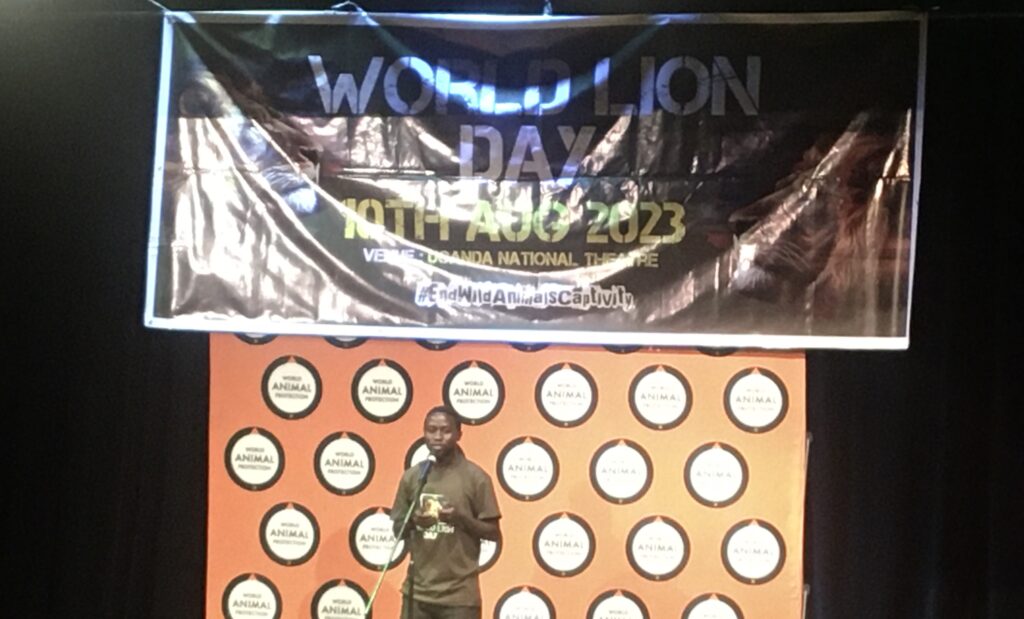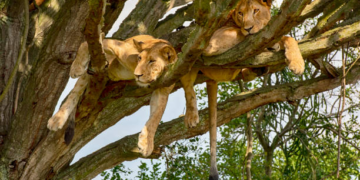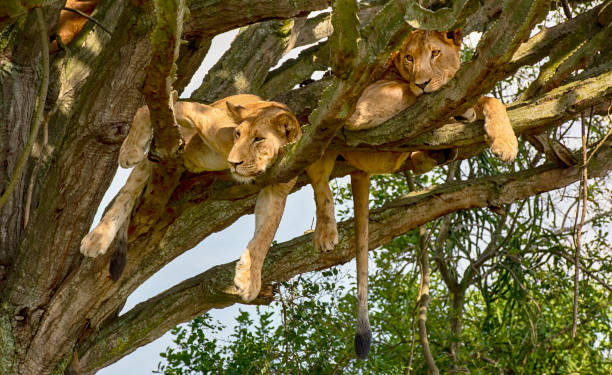World Animal Protection in collaboration with various stakeholders have urged the general public to cease the treatment of Wildlife like commodities.
The call was made at a public art extravaganza hosted at the Uganda National Cultural Centre in Kampala to raise awareness on the existential crisis facing lions in Africa.
Through the fun-filled entertaining event in commemoration of the World Lion Day, Ugandan creatives asked African governments to put an end to practices such captive breeding, petting, trade in lion parts and poaching that are causing so much suffering to Africa’s lions and leading to serious population declines.
Edith Kabesiime, Wildlife Campaign Manager at World Animal Protection, said; “As the world comes together to celebrate World Lion Day, our worry is that some African countries want to adopt what South Africa is currently struggling to do away with – Captive lion farming.”
“The impact of South Africa’s cruel lion farming industry, which fuels the illegal international trade in big cat bones is gradually infiltrating into Uganda, posing a grave threat to the nation’s lion population. We are also seeing commercial captive breeding and petting of lions creeping into more countries. This abuse of lions needs to be halted before it takes root. The creatives have spoken, and governments must listen and act to protect this iconic species. Lions belong in the wild, not in cages to be exploited and abused in the name of profit.”
She argued that these operations are contributing to the illegal international trade in big cat bones, orchestrated by organized crime groups.
World Lions are facing multiple threats, including poaching, habitat loss, and climate change, leading to a sharp decline in their numbers.
African lion population is estimated to be around 20,000 in the wild. With lions now classified as ‘vulnerable’ by the IUCN, urgent action is needed to prevent their further decline.
In Uganda, lion populations in the country remain at risk.
According to the World Animal Protection, Queen Elizabeth National Park, a critical lion habitat, has witnessed a concerning loss of lion numbers over recent years.

World Animal Protection underscores the need for comprehensive measures to protect lions, discourage captive breeding, and prevent other countries from becoming a repository for South Africa’s abused lions as breeding stock for new exploitative captive breeding operations.
At the event, emphasis was put on the on the importance of safeguarding lions in their natural environment and the urgency of addressing the factors contributing to their decline.
It is a call to action for the public to mount pressure on their governments to stop enabling commercial exploitation of wildlife.











